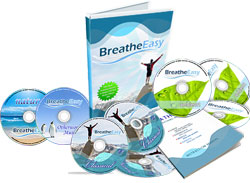The shock health news of the week is that taking calcium supplements has been shown to increase the risk of heart attack by up to a third! What’s more, the risk is greatest among those most likely to have been advised to take calcium: older people and, in particular, post-menopausal women.
Calcium has long been considered a virtual panacea for better health. Calcium supplements have been advised for every purpose from calming the nerves to protecting the heart to preventing colon cancer. More than anything else, older people, especially women, have been urged to take calcium to maintain bone density and prevent osteoporosis.
But the cruelest blow of all is that while calcium supplements may increase bone density they fail to reduce the risks of fracture or death. Now, in a further ironic twist, it’s been discovered that, far from strengthening the heart, calcium supplementation significantly increases the risk of heart failure.
So what’s the link between calcium and high blood pressure?
High levels of calcium in the blood, largely due to supplements, leads to atherosclerosis or hardening of the arteries. The technical term for this process of hardening of the arteries should in itself be a tip-off: calcification!
Of course atherosclerosis is a major factor behind high blood pressure. The heart has to work much harder to pump blood through tight, inflexible and clogged arteries. The result is exactly as discovered in the recent studies: hypertension along with an increased risk of heart attack.
As if this topic needs any more irony… calcium supplements are often recommended as a remedy to lower blood pressure.
The right way to get lower blood pressure and other benefits from calcium…
It’s well known that calcium is an essential mineral for good health. A proper balance of calcium and other minerals in the body plays a major role in regulating healthy blood pressure.
So what’s going on here? How come calcium is suddenly dangerous?
What’s going on is that nutritional supplements don’t behave in the same way in the body as they do when occuring naturally as part of your diet. This is why so much supplement promotion is sheer hokum. (There are exceptions to everything… in my last post I wrote about a combination of supplements with good scientific support for lowering blood pressure.)
As I mentioned briefly, free-ranging calcium in the blood can be a menace while naturally-occuring calcium in food is something else entirely, at least in effect. The obvious solution is a healthy, balanced diet of whole, natural foods. There is no evidence that dietary calcium has any ill effects; in fact, it’s entirely beneficial. And you can get all the calcium you need from your diet.
Enough of the whole-dairy hysteria: enjoy a little fat with your calcium…
One of the easiest, and most enjoyable, ways to get abundant calcium is through dairy foods. And please don’t follow the misguided mantra of avoiding whole dairy products with low-fat or skim versions. I saw a doctor on TV just this morning spouting this very same party line and claiming that these low or non-fat alternatives have even more calcium than whole-dairy products…
They only have calcium at all because it’s had to be added after processing has stripped the milk of nearly all its nutrients! These are calcium supplements… low-fat and skim-milk products are processed foods!
Eat real food. If you’re concerned about calories just eat less (while enjoying it more!).
And dairy products are not the only way to get calcium (just the easiest). Other calcium-rich foods include salmon, spinach, tofu, beans, almonds, oranges and broccoli. Just google it and you’ll find a long list of foods that will suit any taste.
What other dangers to your blood pressure and wider health are lurking in our absurd dietary beliefs?
The bad news about calcium supplements is by no means conclusive. For example, most supplements combine calcium with Vitamin D and this combination was not studied.
Nevertheless, this should serve as a wake-up call to the whole notion of what I can only call “health engineering” through supplements, superfoods and micro-nutrition.
The evidence is growing that the more we engineer our diet and lifestyles the further we get from good, natural health.





 A unique method of blood pressure control: The BreatheEasy Sytem
A unique method of blood pressure control: The BreatheEasy Sytem